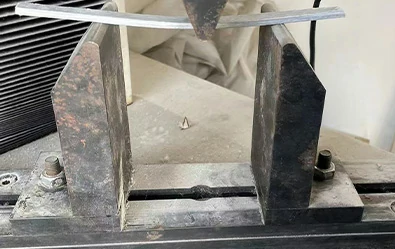loading...
- No. 9, Xingyuan South Street, Dongwaihuan Road, Zaoqiang County, Hengshui, Hebei, China
- admin@zjcomposites.com
- +86 15097380338
- Welcome to visit our website!
frp louvers for cooling tower
FRP Louvers for Cooling Towers An Essential Component for Efficient Cooling
Cooling towers play a vital role in various industries by dissipating heat from processes or equipment, maintaining the optimal operating temperature. The efficiency of a cooling tower largely depends on its design and components, among which louvers are critical. Fiberglass Reinforced Plastic (FRP) louvers have emerged as a popular choice due to their durability, lightweight properties, and resistance to corrosion. This article will explore the benefits, applications, and considerations of using FRP louvers in cooling towers.
Understanding FRP Louvers
FRP louvers are vertical slats designed to optimize air circulation in cooling towers while minimizing water and energy loss. Made from a composite material consisting of fiberglass and plastic resin, these louvers offer superior strength and flexibility compared to traditional materials like wood or metal. This durability makes FRP louvers ideal for harsh environmental conditions often encountered in cooling tower applications.
Key Advantages of FRP Louvers
1. Corrosion Resistance One of the most significant benefits of FRP louvers is their resistance to corrosion. Cooling towers are exposed to moisture, chemicals, and varying temperatures, which can quickly deteriorate metal or wooden components. FRP materials resist rust, rot, and degradation, enhancing the longevity of the louvers and reducing maintenance costs.
2. Lightweight and Easy to Install The lightweight nature of FRP louvers simplifies transportation and installation. Unlike heavier materials that may require additional support structures, FRP louvers can be easily handled and fitted into place, thus speeding up the installation process and reducing labor costs.
3. Thermal Insulation FRP louvers provide excellent thermal insulation, helping to maintain the desired cooling efficiency. This insulation property minimizes heat transfer and maintains cooler temperatures inside the cooling tower, ultimately contributing to energy savings.
4. Design Flexibility FRP louvers can be molded into various shapes and sizes, allowing for customization based on specific project requirements. This flexibility is advantageous for cooling towers of different designs or applications, ensuring optimal airflow and performance.
5. Low Maintenance Requirements Due to their robust nature and resistance to corrosion, FRP louvers require minimal maintenance compared to other materials. Regular cleaning is often sufficient to keep them in optimal condition, making them a cost-effective long-term solution.
Applications of FRP Louvers in Cooling Towers
FRP louvers are widely used in industrial and commercial cooling towers, including
frp louvers for cooling tower

- Power Plants In power generation facilities, cooling towers are essential for managing waste heat. FRP louvers ensure effective airflow, enhancing the cooling process and overall plant efficiency.
- Chemical Processing Facilities The chemicals used in these facilities can be highly corrosive. The use of FRP louvers helps maintain air circulation while resisting damage from chemical exposure.
- HVAC Systems In large commercial buildings, FRP louvers in cooling towers play a crucial role in HVAC systems, contributing to the efficient regulation of indoor temperatures.
- Food and Beverage Industry Cooling towers in the food industry require materials that meet strict hygiene standards. FRP’s smooth surface and non-porous nature make it a suitable choice for environments where cleanliness is paramount.
Considerations when Choosing FRP Louvers
When selecting FRP louvers for cooling towers, several factors should be considered
- Design Specifications Ensure that the louvers are designed according to the specific airflow requirements of the cooling tower.
- Environment Conditions Assess the environmental factors, such as temperature variations, exposure to chemicals, and humidity levels, that may affect the louvers' performance.
- Budget Constraints While FRP louvers may have a higher upfront cost than some alternatives, their longevity and reduced maintenance can lead to significant savings over time.
Conclusion
FRP louvers are an essential component of cooling towers, offering numerous benefits, including corrosion resistance, lightweight design, and low maintenance. Their versatility makes them suitable for various applications, from industrial power plants to commercial HVAC systems. By investing in high-quality FRP louvers, facilities can enhance their cooling efficiency, lower operational costs, and ensure a longer lifespan for their cooling tower systems.
-
The Rise of FRP Profiles: Strong, Lightweight, and Built to LastNewsJul.14,2025
-
SMC Panel Tanks: A Modern Water Storage Solution for All EnvironmentsNewsJul.14,2025
-
GRP Grating: A Modern Solution for Safe and Durable Access SystemsNewsJul.14,2025
-
Galvanized Steel Water Tanks: Durable, Reliable, and Ready for UseNewsJul.14,2025
-
FRP Mini Mesh Grating: The Safer, Smarter Flooring SolutionNewsJul.14,2025
-
Exploring FRP Vessels: Durable Solutions for Modern Fluid HandlingNewsJul.14,2025
-
GRP Structures: The Future of Lightweight, High-Performance EngineeringNewsJun.20,2025
